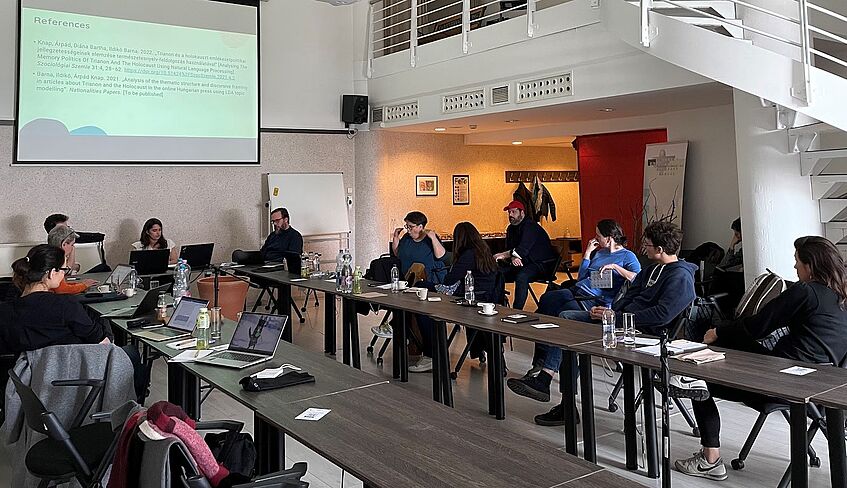Memory policy in theoretical and practical dimensions
The workshop within the CENTRAL project entitled Memory policy in theoretical and practical dimensions. Mass violence in the collective memory of the peoples of Eastern Europe and the Balkans (1045–2020) took place at ELTE Faculty of Social Sciences from April 27–29, 2022. The joint workshop was organized by Dr. Ildikó Barna (Eötvös Loránd University, Budapest) in cooperation with Dr. Kateřina Králová (Charles University, Prague), Dr. Katherina Tyran (University of Vienna), and Dr. Marija Vulesica (Humboldt University of Berlin). It was a continuation of the inter-university cooperation started in 2016 and discussed both individual academic projects of the participants and possibilities of future cooperation. The event gave an opportunity to present research to both senior and junior academics, including PhD students and to discuss ongoing projects. It offered a discussion platform for scholars combining expertise on Central and Southeast Europe in an interdisciplinary setting including Area Studies (Slavic Studies/Balkan Studies/East European Studies), History, Political Sciences, Sociology, and Linguistics.
The workshop was dedicated to the still conflicting potential collective memory has in many countries in Eastern Europe and the Balkans. This is due to the fact that different participants of violence and war de facto consciously or unconsciously form different memories that depend on their roles in conflicts (heroes, victims, bystanders, and criminals). The immediate participants of those events over time transfer the memories of the experiences, thus forming a communicative memory. Although it is subjective, communicative memory plays a significant role in forming memories of certain events. Opposite memories are in conflict, which determines the relevance and urgency of reconciliation. Within the workshop, several topics widely present in recent publications and research of the project partners have been discussed, such as Memory, Borderlands, Migration Studies, Genocide, Post-Conflict, and Linguistic Landscapes.
The workshop started on Wednesday, April 27, with presentations by participants from Vienna, Prague, and Berlin on conflictive memories in different contexts and engagements of various policy makers in memory politics. The second day was followed by presentations of junior researchers from Budapest, Prague, and Vienna on the representation of war and memory politics on contested history. In the afternoon, participants joined a guided tour on traces of history and memory in Budapest by Andrea Szőnyi of the Zachor Foundation & USC Shoah Foundation. On Friday, future collaboration plans have been intensely discussed, specifically with a focus on a further workshop being planned in Vienna in the academic year 2022/2023. The programme in detail may be found here: Programme

